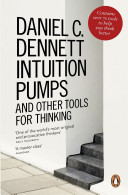Make Mistakes
For evolution, which knows nothing, the steps into novelty are blindly taken by mutations, which are random copying “errors” in DNA. Most of these typographical errors are of no consequence, since nothing reads them! They are as inconsequential as the rough drafts you didn’t, or don’t, hand in to the teacher for grading. The DNA of a species is rather like a recipe for building a new body, and most of the DNA is never actually consulted in the building process. (It is often called “junk DNA” for just that reason.) In the DNA sequences that do get read and acted upon during development, the vast majority of mutations are harmful; many, in fact, are swiftly fatal. Since the majority of “expressed” mutations are deleterious, the process of natural selection actually works to keep the mutation rate very low. Each of you has very, very good copying machinery in your cells. For instance, you have roughly a trillion cells in your body, and each cell has either a perfect or an almost perfect copy of your genome, over three billion symbols long, the recipe for you that first came into existence when your parents’ egg and sperm joined forces. Fortunately, the copying machinery does not achieve perfect success, for if it did, evolution would eventually grind to a halt, its sources of novelty dried up. Those tiny blemishes, those “imperfections” in the process, are the source of all the wonderful design and complexity in the living world. (I can’t resist adding: if anything deserves to be called Original Sin, these copying mistakes do.)
The chief trick to making good mistakes is not to hide them—especially not from yourself. Instead of turning away in denial when you make a mistake, you should become a connoisseur of your own mistakes, turning them over in your mind as if they were works of art, which in a way they are. The fundamental reaction to any mistake ought to be this: “Well, I won’t do that again!” Natural selection doesn’t actually think the thought; it just wipes out the goofers before they can reproduce; natural selection won’t do that again, at least not as often. Animals that can learn—learn not to make that noise, touch that wire, eat that food—have something with a similar selective force in their brains. (B. F. Skinner and the behaviorists understood the need for this and called it “reinforcement” learning; that response is not reinforced and suffers “extinction.”) We human beings carry matters to a much more swift and efficient level. We can actually think the thought, reflecting on what we have just done: “Well, I won’t do that again!” And when we reflect, we confront directly the problem that must be solved by any mistake-maker: what, exactly, is that? What was it about what I just did that got me into all this trouble? The trick is to take advantage of the particular details of the mess you’ve made, so that your next attempt will be informed by it and not just another blind stab in the dark.
We have all heard the forlorn refrain “Well, it seemed like a good idea at the time!” This phrase has come to stand for the rueful reflection of an idiot, a sign of stupidity, but in fact we should appreciate it as a pillar of wisdom. Any being, any agent, who can truly say, “Well, it seemed like a good idea at the time!” is standing on the threshold of brilliance.
Notes:
Evolution makes them all the time, and look what it has produced. Appreciate your mistakes, view them as works of art.
Folksonomies: natural selection learning mistakes
Taxonomies:
/science/medicine/genetics (0.543709)
/science/biology/cytology (0.339778)
/art and entertainment/books and literature/non-fiction (0.315852)
Keywords:
natural selection (0.904228 (positive:0.341028)), good copying machinery (0.789547 (positive:0.445955)), B. F. Skinner (0.731490 (neutral:0.000000)), similar selective force (0.730973 (positive:0.300307)), good idea (0.705220 (positive:0.432888)), Mistakes Evolution (0.668296 (negative:-0.455610)), copying mistakes (0.663276 (negative:-0.603510)), random copying (0.651060 (negative:-0.239265)), junk DNA (0.629792 (negative:-0.548005)), good mistakes (0.627056 (negative:-0.751621)), DNA sequences (0.623818 (negative:-0.335900)), typographical errors (0.618896 (negative:-0.768859)), forlorn refrain (0.604824 (negative:-0.438906)), vast majority (0.603797 (negative:-0.466647)), rough drafts (0.603485 (negative:-0.578512)), tiny blemishes (0.601594 (negative:-0.260934)), new body (0.598737 (positive:0.444620)), perfect success (0.595474 (neutral:0.000000)), building process (0.594316 (neutral:0.000000)), mutation rate (0.593129 (neutral:0.000000)), perfect copy (0.590941 (positive:0.331306)), living world (0.590841 (positive:0.664937)), Original Sin (0.588820 (neutral:0.000000)), wonderful design (0.588247 (positive:0.664937)), blind stab (0.587353 (negative:-0.423027)), particular details (0.583744 (positive:0.347985)), chief trick (0.581636 (negative:-0.751621)), human beings (0.579511 (positive:0.629240)), rueful reflection (0.579009 (positive:0.334947)), fundamental reaction (0.577283 (negative:-0.444853))
Entities:
blemishes:HealthCondition (0.754092 (positive:0.026447)), B. F. Skinner:Person (0.503754 (neutral:0.000000))
Concepts:
DNA (0.977327): website | dbpedia | freebase | yago
Natural selection (0.906421): dbpedia | freebase
Mutation (0.876550): dbpedia | freebase
Thought (0.727228): dbpedia | freebase | opencyc
Evolution (0.719843): dbpedia | freebase | opencyc
Error (0.691226): dbpedia | freebase
Mind (0.611578): dbpedia | freebase | opencyc
Gene (0.582804): dbpedia | freebase





